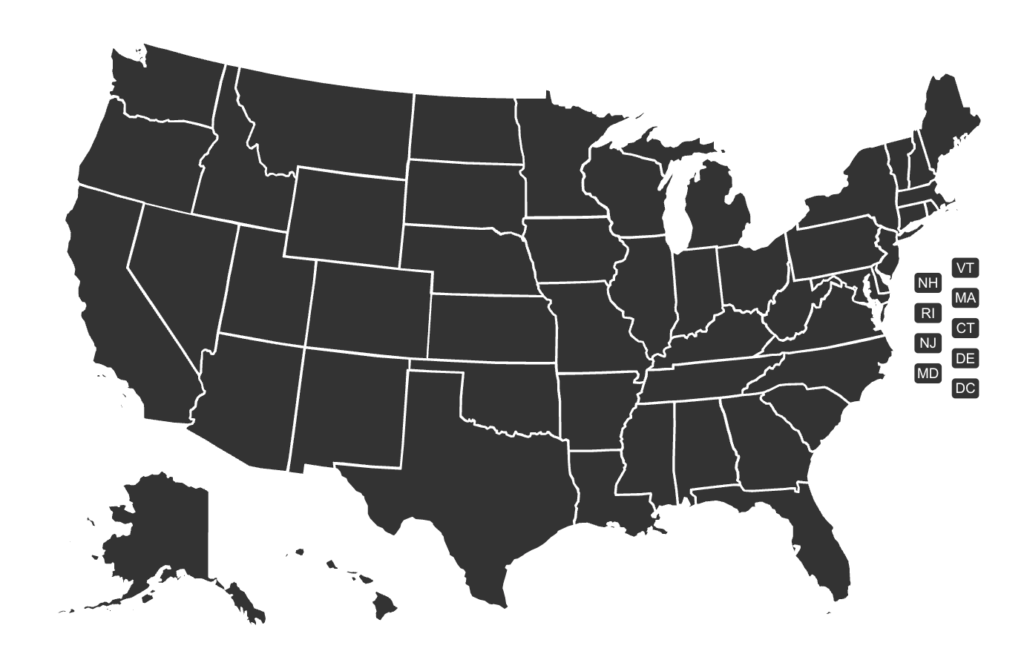Complete Guide to the Pediatric Nurse Practitioner (PNP) Specialty
Definition: What Is a Pediatric Nurse Practitioner (PNP)?
A Pediatric Nurse Practitioner (PNP) is an advanced practice registered nurse (APRN) that has specialized education, training, and expertise to provide primary care and specialty care to children from birth through the teen years. The PNP often works alongside pediatricians in providing care to children, but may also work independently in some states.
The American Association of Nurse Practitioners (AANP) indicates that all nurse practitioners need to understand how specific laws in their state, or in the state where they wish to work, affects their practice. Every nurse practitioner, including the PNP, adheres to the rules and regulations of the state's Nurse Practice Act. Although some states give full practice authority to pediatric nurse practitioners, others limit the PNP in some aspects, such as in supervision requirements, or in certain elements of practice.
Pediatric Nurse Practitioner Scope of Practice
The scope of practice for the PNP includes providing care from the newborn to the young adult. Pediatric nurse practitioners provide more advanced care to their young patients than the registered nurse. Once the RN completes the additional education, training, and certification, the pediatric nurse practitioner supports the optimal health of children by performing duties such as:
- Documenting the child's health history and performing advanced exams
- Ordering and interpreting diagnostic labs and tests
- Starting IVs, suturing or dressing wounds
- Treating common childhood illnesses and managing chronic illnesses
- Performing assessments and managing the disease processes in children
- Collaborating with interdisciplinary health team members
- Educating family members regarding the treatment plan and ongoing care
- Educating family members about the effect of a child's illness on their growth and development
The Kids Health from Nemours explains that the scope of practice for pediatric nurse practitioners also includes tasks such as teaching children about self-care and making healthy lifestyle choices. This would, of course, be based on the child's level of understanding. PNPs also educate other healthcare providers, and some outside sources about children's health care.
Skills & Abilities
There are a variety of skills and abilities required of the pediatric nurse practitioner. Some of these include:
- Providing evidence-based care across a variety of pediatric health care settings
- Demonstrating a knowledge of advanced health assessment, advanced pathophysiology and pharmacology
- Demonstrating the technological skills required of the PNP
- Exhibiting best practices and clinical reasoning
- Possessing excellent communication skills along with compassion and empathy
- Demonstrating the ability to prescribe and implement an appropriate comprehensive therapeutic treatment plan
Pediatric Nurse Practitioner Certification & Subspecialties
After you complete your online education, it’s key that you become certified in order to be fully recognized as a pediatric nurse practitioner by healthcare organizations. When you get certified, you’re showing not only that you’ve completed the educational and clinical requirements, but that you can actually pass the test when it comes to your knowledge of pediatric nursing care. While taking a test can be nerve-wracking, any online pediatric nurse practitioner program will leave you well prepared to succeed on your certification exam. Many online nurse practitioner programs offer test prep as an option for nurses who plan to take their certification exam after they graduate. Certification information is as follows:
| CPNP – Primary Care | CPNP – Acute Care | |
|---|---|---|
| Organization | Pediatric Nursing Certification Board | Pediatric Nursing Certification Board |
| Cost | $385 | $385 |
| Number of Questions | 175 | 175 |
| Eligibility Requirements | Active, unencumbered RN license, at least 500 clinical practice hours, graduation from an ACEN or CCNE certified graduate pediatric nursing program | Active, unencumbered RN license, at least 500 clinical practice hours, graduation from an ACEN or CCNE certified graduate pediatric nursing program |
Many nurses pursuing their pediatric nurse practitioner education and certification choose a subspecialty area. The subspecialty areas are sometimes limited by the program offerings at a specific school. Some schools offer one general PNP program, while other schools offer several subspecialty options.
The subspecialties for the pediatric nurse practitioner include:
- Neonatal
- Acute care
- Primary care
- Cardiology
- Oncology
- Neurology pediatric nurse practitioner
There are several other possible subspecialties available, including in orthopedics, dermatology, gastroenterology, or endocrinology subspecialties for the pediatric nurse practitioner. The subspecialties allow for focusing on an area of practice that is of particular interest to the PNP. Keep in mind that subspecializing is optional, and some subspecialties will require additional certification.
Becoming a Pediatric Nurse Practitioner
Now that you know a little more about the pediatric nurse practitioner specialty, you may wish to learn more about the process of becoming a nurse practitioner. Enrolling in an accredited program at the degree level of your choice is the first step, and luckily there are many pediatric NP programs available across the country – many of them offered in a fully online or hybrid format. Degree options include:
Once a student completes their online program, it’s time to get licensed and certified in their state of residence. Depending on the state the NP lives in, they may be granted full or supervised practice authority.
Current RNs who are interested in the pediatric nurse practitioner specialty are advised to gain experience in the following areas to give them a solid foundation for their future online pediatric NP education:
- Family care
- Pediatrics in any area of care: oncology, endocrinology, etc.
- Neonatal
- School nursing

- Alabama
- Alaska
- Arizona
- Arkansas
- California
- Colorado
- Connecticut
- Delaware
- Washington, DC
- Florida
- Georgia
- Hawaii
- Idaho
- Illinois
- Indiana
- Iowa
- Kansas
- Kentucky
- Louisiana
- Maine
- Maryland
- Massachusetts
- Michigan
- Minnesota
- Mississippi
- Missouri
- Montana
- Nebraska
- Nevada
- New Hampshire
- New Jersey
- New Mexico
- New York
- North Carolina
- North Dakota
- Ohio
- Oklahoma
- Oregon
- Pennsylvania
- Rhode Island
- South Carolina
- South Dakota
- Tennessee
- Texas
- Utah
- Vermont
- Virginia
- Washington
- West Virginia
- Wisconsin
- Wyoming
Pediatric Nurse Practitioner Employment Opportunities
The Bureau of Labor Statistics (BLS) indicates that the expected job growth rate for all nurse practitioners through the year 2028 is 26 percent, or ‘much faster than average,' compared to other occupations. Compare this to the American Association of Nurse Practitioners, who reveals information showing an anticipated 31 percent job growth rate.
Pursue a career as a pediatric nurse practitioner, which is consistently ranked near the top of the ‘most trusted professions,' and work in settings such as:
- Children's hospitals
- Emergency departments
- Intensive care
- Outpatient children's clinics or subspecialty clinics
- Urgent care
- School-based health settings or public health clinics that treat children
Pediatric Nurse Practitioner Salaries
The median annual salary for nurse practitioners for 2019 was $115,800, according to the BLS. Salary.com lists the 50 percent median salary for pediatric nurse practitioners at $106,300, somewhat less than the BLS data.
Prospective PNPs should consider factors that possibly impact their salary. Some factors include:
- Geographical location
- Number of years spent in the profession
- Education
- Certifications
- Additional skills such as those required when working in PNP subspecialties

